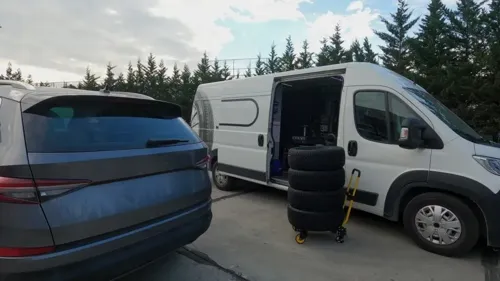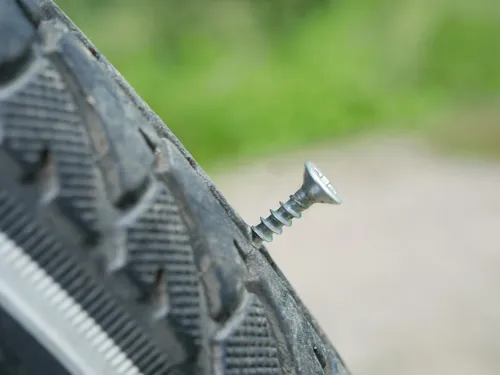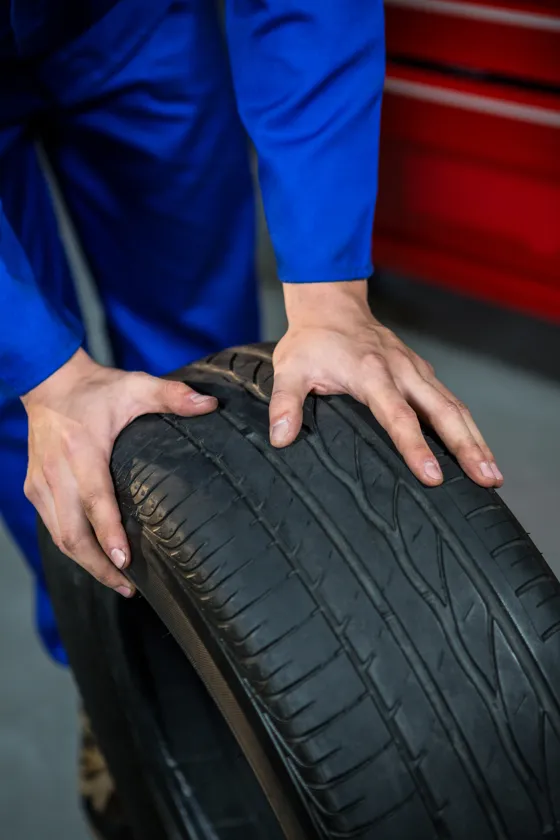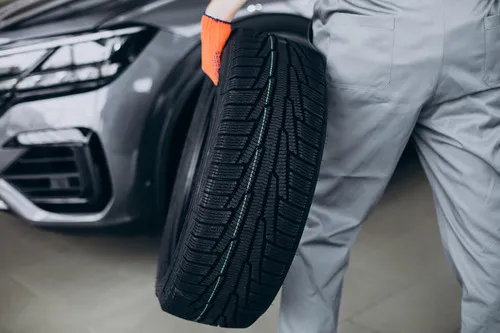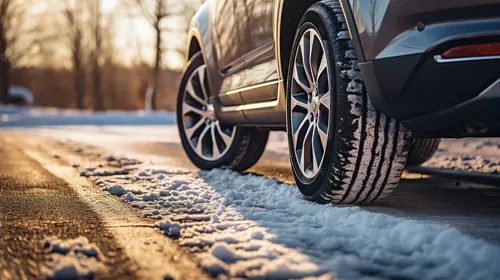Tyre Pressure 101: Why It Matters
Under-inflated or over-inflated tyres can cost you more than you think — here’s how to get it right.
Posted on
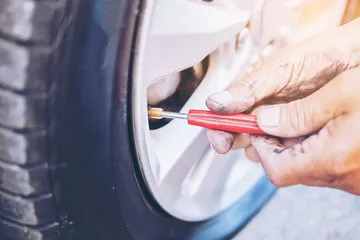
Tyre pressure is one of the most overlooked aspects of vehicle maintenance — yet it plays a vital role in safety, fuel efficiency, and overall performance.
In this guide, we’ll cover the basics of tyre pressure, explain why it matters, and give you practical tips to keep your tyres inflated to the correct PSI every time.
1. What Is Tyre Pressure?
Tyre pressure refers to the amount of air in your tyres, measured in pounds per square inch (PSI) or bar. Every vehicle has a recommended pressure setting — usually between 30–36 PSI — set by the manufacturer for optimal performance.
You can find your vehicle’s recommended tyre pressure:
- Inside the driver-side door frame
- In the vehicle handbook
- On the fuel cap in some models
Note: Front and rear tyres may have different pressure settings, especially for vans or vehicles carrying heavy loads.
2. Why Tyre Pressure Matters
Maintaining the correct tyre pressure improves:
- Safety: Prevents blowouts, improves braking, and enhances handling
- Fuel Economy: Under-inflated tyres can increase rolling resistance and waste fuel
- Tyre Life: Correct pressure prevents uneven wear and extends tyre lifespan
- Comfort: Delivers smoother rides and better traction, especially in wet weather
Driving with incorrect pressure might seem harmless, but it can affect nearly every part of your driving experience.
3. The Dangers of Low Tyre Pressure
Under-inflated tyres are one of the most common causes of blowouts and uneven wear. Even being just a few PSI under can have consequences:
- Worse fuel efficiency (up to 3–5% more fuel used)
- Longer stopping distances
- Poor grip in wet or icy conditions
- Tyre shoulder wear, leading to early replacement
If your car feels sluggish or your steering is heavy, low tyre pressure may be the cause. Regular checks can prevent long-term damage and keep you safer on the road.
4. The Dangers of Over-Inflated Tyres
On the flip side, putting too much air in your tyres can reduce the contact patch between the tyre and the road, leading to:
- Reduced traction and stability
- Harsh ride quality
- Increased risk of impact damage (from potholes or kerbs)
- Centre wear, reducing overall tyre life
Tyres that are too firm may feel “bouncy” and increase stopping distances on wet roads. Always stick to the recommended PSI.
5. How Often Should You Check Your Tyre Pressure?
Ideally, you should check tyre pressure at least once a month — and always before long journeys or when carrying extra loads.
Check when the tyres are cold (not immediately after driving), as heat increases internal pressure and can give false readings.
Top tip: Many UK petrol stations offer free or low-cost digital pressure check machines. Alternatively, invest in a handheld digital tyre gauge for home use.
6. Seasonal Changes Affect Tyre Pressure
Did you know that cold weather causes air to contract inside tyres? That’s why many drivers find their tyre pressure warning lights coming on in winter.
For every 10°C drop in temperature, your tyre pressure can fall by 1–2 PSI. So, if you’ve checked pressure in warm weather, you may need to re-check when it’s cold.
Likewise, summer heat can increase pressure slightly — making regular checks vital in both extremes.
7. What About Tyre Pressure Monitoring Systems (TPMS)?
Most modern cars have TPMS, which alerts you if pressure drops below a safe threshold. However:
- It doesn’t warn about gradual pressure loss unless it’s significant
- It may not detect over-inflation
- Sensor batteries can fail or become inaccurate over time
So while TPMS is helpful, it’s no substitute for manual pressure checks — especially before road trips or when carrying loads.
8. Mobile Tyre Pressure Checks for Your Convenience
If you’re short on time or prefer a professional check, Lucky Mobile Tyres offers mobile tyre pressure checks as part of our fitting and inspection service.
- We check all four tyres plus your spare (if applicable)
- Adjust PSI to manufacturer specs
- Inspect for slow punctures or valve issues
- Can be combined with a full tyre fitting or repair visit
We’ll come to your home, office, or roadside location — anywhere in the UK — and ensure your tyres are in top condition.
Final Thoughts
Tyre pressure may seem like a small detail, but it can have a huge impact on your car’s performance, fuel economy, and safety. A few minutes spent checking your PSI each month could save you hundreds in fuel and tyre wear — and potentially prevent an accident.
Need help? Book a mobile tyre check or fitting with Lucky Mobile Tyres and drive with confidence knowing your tyres are spot-on — anytime, anywhere.

